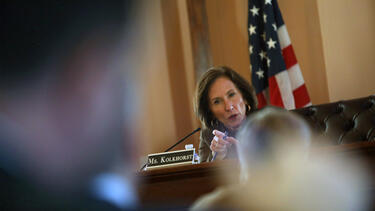Politics
Speaker Mike Johnson’s ‘Profiles in Courage’ Moment
Yale SOM leadership expert Jeffrey Sonnenfeld and co-author Steven Tian write that the House Speaker displayed rare courage in learning on the job and defying extremists in his own party—and draw historical parallels to an ideological conversion that changed the course of the Cold War.

A Divided America Emboldens Putin’s Aggression
Alexei Navalny’s death is another sign that Russia is testing the limits of the West—and the U.S. is failing that test, write Prof. Jeffrey Sonnenfeld and co-author Steven Tian.

The FTC’s Antitrust Overreach Is Hurting U.S. Competitiveness and Destroying Value
Yale SOM’s Jeffrey Sonnenfeld and Steven Tian write that FTC chair Lina Khan’s attempts to block mergers are draining economic value—and consistently failing in court.
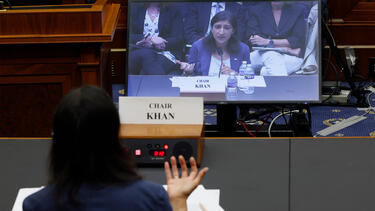
The Budget Deal Is a Tragedy for Ukraine
With hours to go before a government shutdown, Congress passed a short-term spending bill—but the deal came at the cost of aid for Ukraine. Yale SOM’s Jeffrey Sonnenfeld writes that even if a separate funding bill eventually passes, the move weakens the coalition against Russia.

What I Learned Debating Vivek Ramaswamy
Yale SOM’s Jeffrey Sonnenfeld, who has tangled on cable news with the entrepreneur turned GOP candidate, says the key is to avoid following him down diversionary rabbit holes.
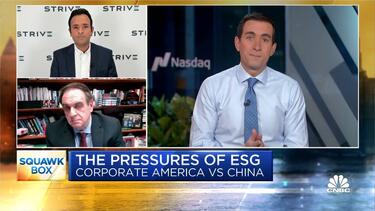
The Critics of Bidenomics Are Being Proven Wrong
Yale SOM’s Jeffrey Sonnenfeld and Steven Tian write that much of the credit for the economic good news belongs to President Joe Biden and his transformative public investment programs.
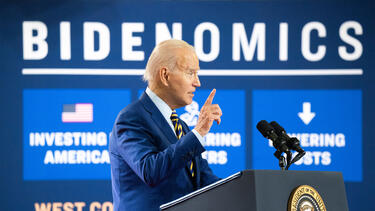
The Business of ‘Anti-Woke’ Is Falling Flat
Yale SOM’s Jeffrey Sonnenfeld and Steven Tian write that the exchange-traded funds that boycott companies taking action on social issues are underperforming the market and struggling to find investors.
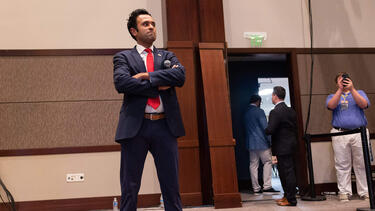
Cynicism and Ageism Are Drowning Out Biden’s Accomplishments as He Seeks Second Term
Yale SOM leadership expert Jeffrey Sonnenfeld writes that cynical media coverage and unwarranted concern over Biden’s age have muted the remarkable achievements of his first term.
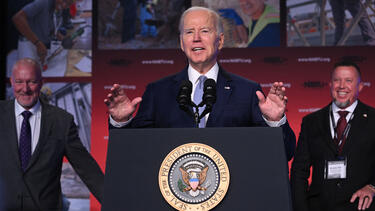
The Dominion Settlement Is Just the Beginning of Fox’s Nightmare
Yale SOM’s Jeffrey Sonnenfeld and Steven Tian write that the historic settlement and the revelations that preceded it have left Fox Corporation damaged and vulnerable to additional litigation.

The Balloons Signal a New Age of Mass Surveillance
Prof. Paul Bracken, an expert in global competition and strategy, says these encounters reveal an urgent need for citizens and governments to catch up on how much we’re already being spied on.

Will the Backlash from the Right Slow ESG Investing?
A string of Republican-led states have pulled funds from firms that use environmental, social, and governance criteria in making investments. We asked Yale SOM’s Todd Cort what the political backlash means for the future of ESG investing.
